
Pest Library
What You Need To Know About Pests In Richmond
Knowing what pests are likely to get into your home or business is more important than you may think. Different pests cause different problems, so identifying the pests you find inside your structure quickly prevents you from wasting valuable time you could be using to get rid of them. Our Pest Library provides the information you need by highlighting the most common pests in our Richmond service area.
Ants
Ants live in almost any environment, including our Richmond area yards and homes. The three most common species who call our area home are:
- Odorous house ants: These ants have a very generic-looking appearance. The best way to distinguish these dark brown to black ants from other species is by the smell they emit when crushed- a rotten-coconut like odor.
- Carpenter ants: They are large ants who like to nest in wood damaged by moisture. In our homes, their nesting habits can result in significant structural damage.
- Pharaoh ants: These small, dark ants have adapted to living mostly indoors. Like other ants, they contaminate our food, but they pose even more dangers by carrying and spreading pathogens which can make people significantly ill.
No matter the species, ants are problematic pests and don’t belong in our homes sharing our food sources
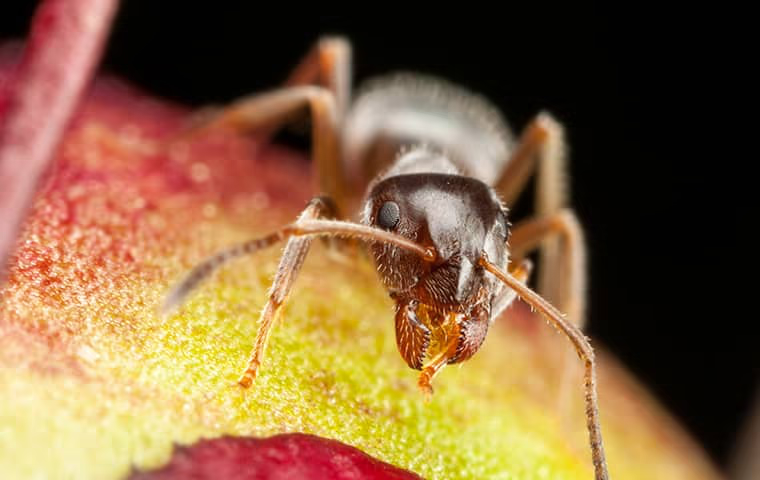
The sheer number of ants living all around us at any given time is what makes these pests so difficult to control and keep out of our homes. Ants know how to work together as a team to ensure their basic needs are met. These insects are excellent communicators, have an incredible sense of smell, and want their colonies to thrive. Our yards and homes provide ants with what they are looking for, and they won’t hesitate to make themselves at home. Their small size means they can find many entry points into our homes, and once they discover food sources, they will keep returning day after day. Ants should be eliminated from Virginia properties because they are a considerable nuisance, their presence is unsightly, and they spread bacteria, and contaminate food.
Use the following strategies to help prevent ants from taking over your Virginia property.
- Reduce their access to water, a key component to their survival, by fixing leaky pipes, outdoor fixtures, faucets, and air-conditioners.
- Regularly wipe down surfaces like tables and counters and vacuum to remove food crumbs from your home.
- Seal spaces in your home's exterior which ants can travel in and out of your home through- gaps around windows, cracks in the foundation and exterior walls, damaged siding, and roof shingles.
- Avoid attracting ants to your home by keeping lids on trashcans, keeping outdoor eating areas free of food debris, and picking up your pet’s uneaten food.
Cockroaches
Unsavory at best, dangerous at worst, cockroaches are pests we don't want to discover in our homes. Cockroaches are problematic for many reasons, including reproducing quickly, living successfully in large groups, and liking to live and forage for food in less than sanitary areas. The three most common roach species in our area are the large American cockroach, the small, quick-moving German cockroach, and the water-loving Oriental cockroach. When cockroaches are in our homes, no matter the species, they pose a danger by spreading parasites, bacteria, viruses, allergens, and contaminating food
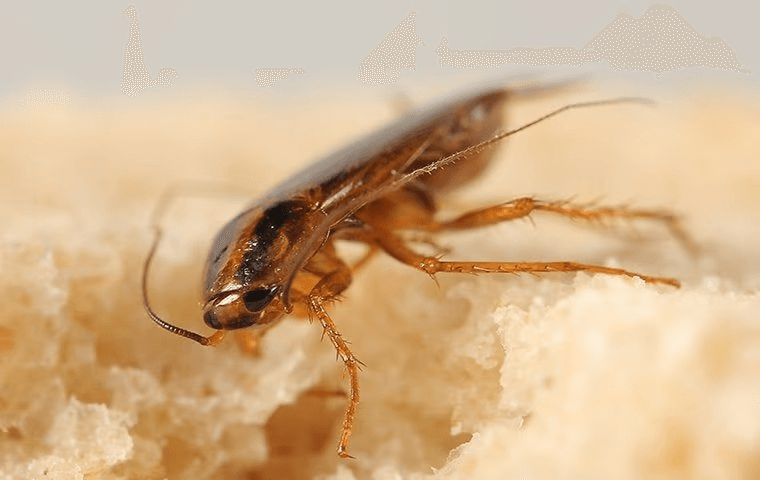
Cockroaches can become a problem in any Richmond home; however, the more clutter and food debris available, the better they will thrive. There are two main ways cockroaches can find a way indoors. The first is by hitchhiking from place to place in things like furniture, appliances, rugs, boxes, or bags. The second way is moving indoors from the outside. Cockroaches can fit their flat, oval bodies through small openings around windows, under doors, through vents, and cracks in the foundation. Once inside, they make quick work of finding warm, humid places to rest and forage for food at night. A home's bathrooms, kitchen, pantry, basement, and utility room are likely places to find cockroaches gathering.
Use the following strategies to help prevent cockroaches from taking over your Virginia home:
- Keep food limited to your kitchen, pantry, and dining areas to limit a cockroach's access to food in your home.
- Keep lids on trash cans and recycling bins.
- Regularly clean out crumbs from drawers, cabinets, and pantries.
- Routinely clean your house by vacuuming floors, wiping down counters, and washing dishes.
- Get rid of water sources by repairing leaky pipes, faucets, and clogged drains.
- Close entry points by sealing openings in your home's exterior.
- Always inspect items you are bringing into your home, especially secondhand items, for hitchhiking cockroaches.
- Schedule a cockroach control treatment for your home or business.
Rodents
Mice and people have lived together for eons. Unfortunately, this relationship has never been a good thing. While our properties provide mice with their basic needs, mice don't give us anything in return; it is a very one-sided relationship! The rodents in our area who regularly make themselves at home in our parks, wooded areas, gardens, crop fields, yards, and homes are roof rats, house mice, and field mice
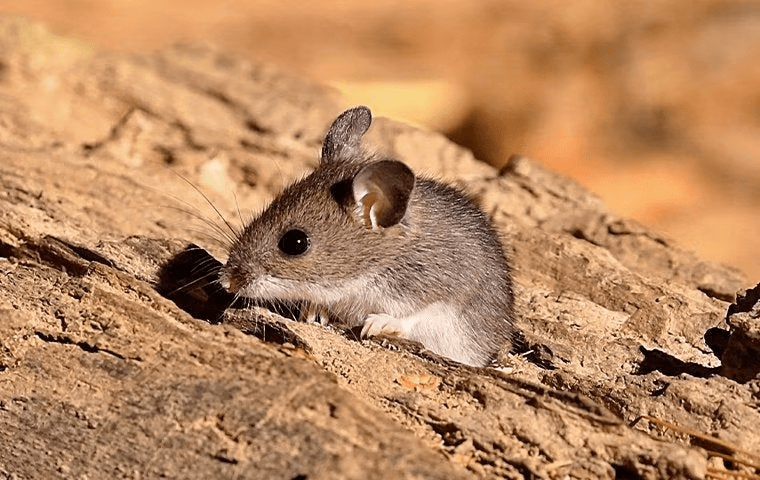
Rodents are nocturnal, so people often notice the signs of their presence before actually seeing the animals themselves. One of the biggest signs of a rodent infestation is finding their dark, capsule-like excrement on the floor, in drawers, in cabinets, or in boxes. Another sign of a rodent problem is finding gnaw marks on cabinets, boxes, or food containers. If you begin to notice a musty odor in your home or hear scratching or running sounds behind your home's walls, rodents have likely found their way into your house. Rodents are common visitors to our indoor and outdoor spaces because they both offer them multiple sources of shelter and food and water sources.
Use the following strategies to help prevent rodents from taking over your Virginia property:
- Remove woodpiles, leaves, and yard debris from your property.
- Cut your grass regularly to keep it short and less attractive to rodents.
- Address openings in your home which provide entry and exit points for rodents. Use caulk or another material to seal cracks in the foundation and exterior walls.
- Place caps on chimneys and screens over vents and drains entering your home.
- Repair leaky pipes and fixtures.
- Regularly harvest vegetable gardens.
- Keep lids on trash cans and compost bins.
Spiders
Spiders are common household pests, and while they often startle us, we usually aren't shocked they are in our homes. Running into spiders, unfortunately, happens quite regularly. Spiders live outside in our yards and gardens and regularly make their way indoors, following their insect prey. Once inside, if there is food, water, and quiet places to hang out and lay their eggs, they will stay and make themselves at home
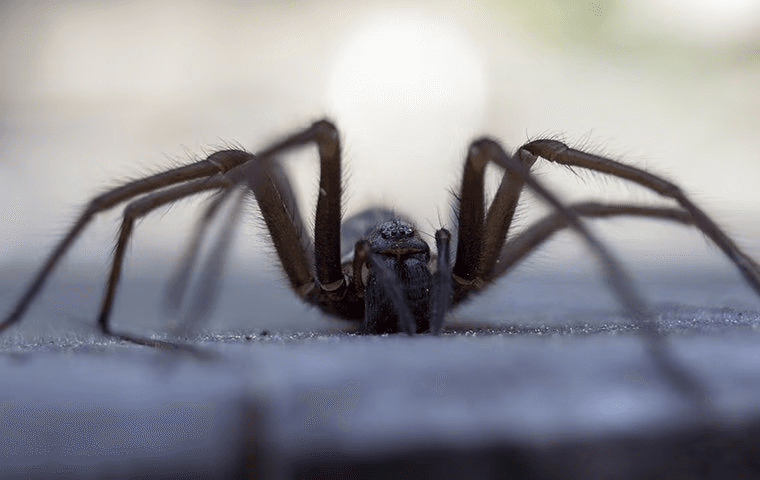
Three of the most common spiders Virginia property owners regularly discover in their indoor and outdoor spaces are the house spider, garden spider, and wolf spider.
- Garden spiders: These spiders primarily live outside in our yards, preferring areas of dense vegetation where they can build their large circular webs to capture their prey.
- Hobo spiders: These are big, fast-moving spiders and are light brown with pale markings. These spiders build funnel-like webs at ground level to capture their prey.
- Wolf spiders: These spiders have short, powerful legs and an overall stocky appearance. Wolf spiders don't build webs; they chase after their prey.
Spiders are helpful out in nature, controlling populations of nuisance and dangerous insects; however, when they and their insect prey take over your home, you need to eliminate them immediately.
Use the following strategies to help prevent spiders from taking over your Virginia property:
- Maintain your garden and lawn, don't allow grass, plants, and other vegetation to become overgrown.
- Remove insect attractants such as standing water, open trash cans, pet food, outdoor eating areas, which brings the insects spiders like to hunt to your yard.
- Eliminate entry points by sealing cracks in your home's exterior, repairing damaged screens, and placing screens over vents and drains entering your home.
- Remove clutter from your house where spiders like to hide. Pay special attention to closets, basements, crawl spaces, and other storage spaces.
Stinging Insects
Stinging insects are outdoor pests and regular visitors to our yards; they are difficult to avoid because they are persistent, territorial, and opportunistic. Our outdoor spaces provide them with multiple nesting and foraging sites. Some of the most common places for these pests to nest include trees, ground holes, gardens, under roof eaves, behind wall voids, and within wood structures. These pests also gather around foraging sites like garbage cans, recycling bins, gardens, and outdoor eating and food prep areas
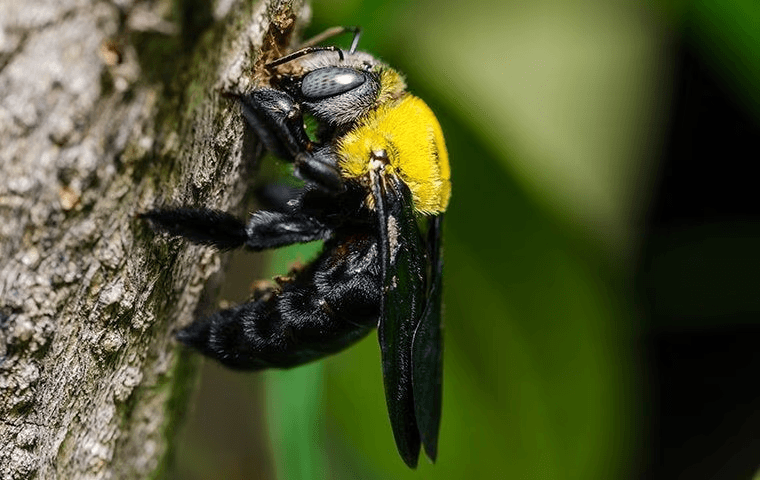
Richmond, Virginia, is home to many different stinging insects, with carpenter bees and hornets being most problematic. Carpenter bees are stinging insects who present a low sting risk, but they nest in wood and can cause damage to your home and any structures in your yard. Hornets are large, robust stinging insects and will aggressively defend themselves and their nest by delivering painful stings. Though hornets are valuable predators, they are dangerous when in our yards. Removing stinging insects from your yard is best done with the help of a professional who can identify their nesting sites and quickly remove them.
Use the following strategies to help prevent stinging insects from taking over your Virginia yard:
- Remove standing water so stinging insects can not use it as a water source.
- Carpenter bees bore into wood to nest, preferring old or untreated wood. Paint or stain decks, patios, fences, wooden furniture, or other wooden structures.
- Cut back tree branches, shrubs, and bushes away from your home's exterior.
- Keep your grass cut short, fill in bare areas, and maintain garden areas to provide fewer spaces for stinging insects to nest.
- Don't overplant flowering landscaping in your property, especially near your home.
Termites
Subterranean termites are the most widespread and problematic termites across the country. They nest in the ground, rarely come to the surface, and travel back and forth from their nest to a food source each day. Termites feed on cellulose found in wood (their primary food source) and other organic materials. When termites find their way into our homes, their feeding habits mean they can cause extensive and costly damage within our homes
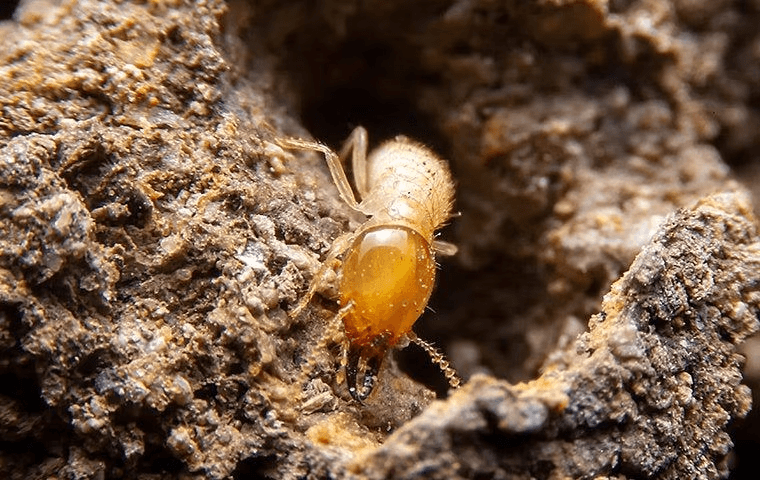
Subterranean termites sometimes find their way into our homes when searching for food. Our homes provide them with reliable sources of food. Once subterranean termites find a way inside through cracks in the foundation or pieces of wood touching the ground, they keep returning to feed. Subterranean termites have high moisture needs; their presence indicates water damage, rot, or wood decay in or on your home. The biggest threat from a termite infestation is when the infestation remains unnoticed for months or years. Staying under the radar and out of sight is why these pests can cause such large amounts of damage to homes and other structures.
Use the following strategies to help prevent termites from taking over and causing significant damage to your Virginia home:
- Eliminate as much wood to soil contact on your home and other structures as possible.
- Replace structural wood in or on your home damaged by water or decaying.
- Repair leaky pipes, windows, or roofs.
- Remove stumps and fallen trees from your property.
- Avoid using wood mulch around your home's exterior.
- Seal gaps and cracks in the exterior foundation of your home.
- Request termite control services for your property.
Trusted Solutions For All Of Your Pest Problems
If you are looking for reliable professionals to help you eliminate pests from your Richmond area home or to help prevent future problems with pests, reach out to Allied Termite and Pest Control of Greater Richmond. We are dedicated to our customers and providing honest and effective home pest control and commercial exterminator solutions. To learn more about our local company and the pest control services we offer, reach out today!


Why Choose Allied Termite and Pest Control Of Greater Richmond?
-
Residential & Commercial PropertiesOur ultimate goal is to keep both homes and businesses safe from pests of all kinds.
-
Professionals With Years of ExperienceWe're proud to offer our services with technicians who know what they're doing.
-
Friendly & Caring Staff
We strive to be friendly, courteous, fair, and compassionate in all our dealings.
What Our Customers Are Saying
-
Exceptional customer service!"Top-notch service with a smile!!! Exceptional customer service!"- Eileen
-
I continue to use Allied for all my pest control work."I continue to use Allied for all my pest control work and routinely refer my family and friends."- Nat
-
I will be contacting them again in the future."They responded to a potentially dangerous situation for our family late on a Friday, without hesitation."- James
-
5 stars!"Pleasant and friendly service with comprehensive expertise."- Stacey
-
Excellent customer service!"Extremely knowledgeable and excellent customer service!"- Jon
-
We've greatly appreciated them."Sam is awesome! We've greatly appreciated his knowledge, time, and services."- Atkinson
-
Highly recommend!"Excellent service and results as always!!"- Mike
-
10/10 recommend!"He truly cared about my concerns and went above and beyond to make sure that they were being met."- Lauren
